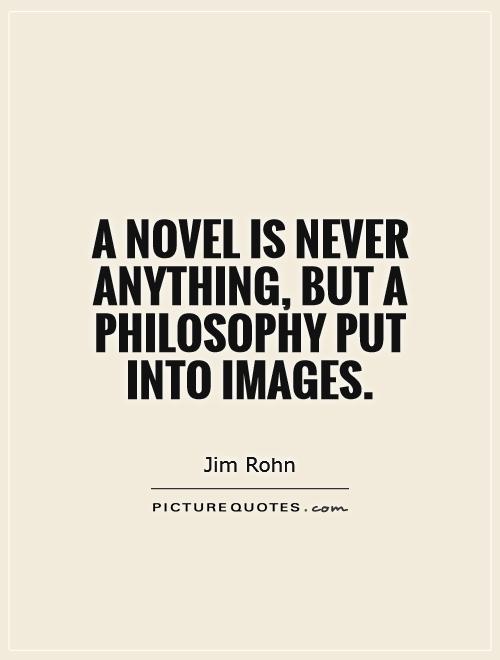A novel is never anything, but a philosophy put into images

A novel is never anything, but a philosophy put into images
Jim Rohn, a renowned motivational speaker and author, once said, “A novel is never anything, but a philosophy put into images.” This statement encapsulates the idea that literature, particularly novels, serves as a medium through which authors can convey their beliefs, values, and perspectives on life. In essence, a novel is not merely a story or a plotline, but a reflection of the author's philosophy and worldview.Rohn's assertion highlights the power of storytelling as a means of communicating complex ideas and concepts. Through the characters, settings, and events depicted in a novel, authors can explore themes such as love, friendship, morality, and the human condition. These themes are often rooted in the author's personal beliefs and experiences, making the novel a reflection of their philosophy.
Moreover, Rohn's statement suggests that novels have the ability to inspire, educate, and provoke thought in readers. By presenting philosophical ideas in a narrative form, authors can engage readers on a deeper level and encourage them to reflect on their own beliefs and values. In this sense, novels can serve as a catalyst for personal growth and self-discovery.
Rohn's own work as a motivational speaker and author reflects this idea of using storytelling to convey philosophical messages. Through his books and speeches, Rohn shared his insights on success, personal development, and the power of positive thinking. His philosophy, rooted in principles of self-improvement and goal-setting, was woven into the fabric of his writing, making his work not just a collection of words, but a guide to living a more fulfilling and purposeful life.












 Friendship Quotes
Friendship Quotes Love Quotes
Love Quotes Life Quotes
Life Quotes Funny Quotes
Funny Quotes Motivational Quotes
Motivational Quotes Inspirational Quotes
Inspirational Quotes